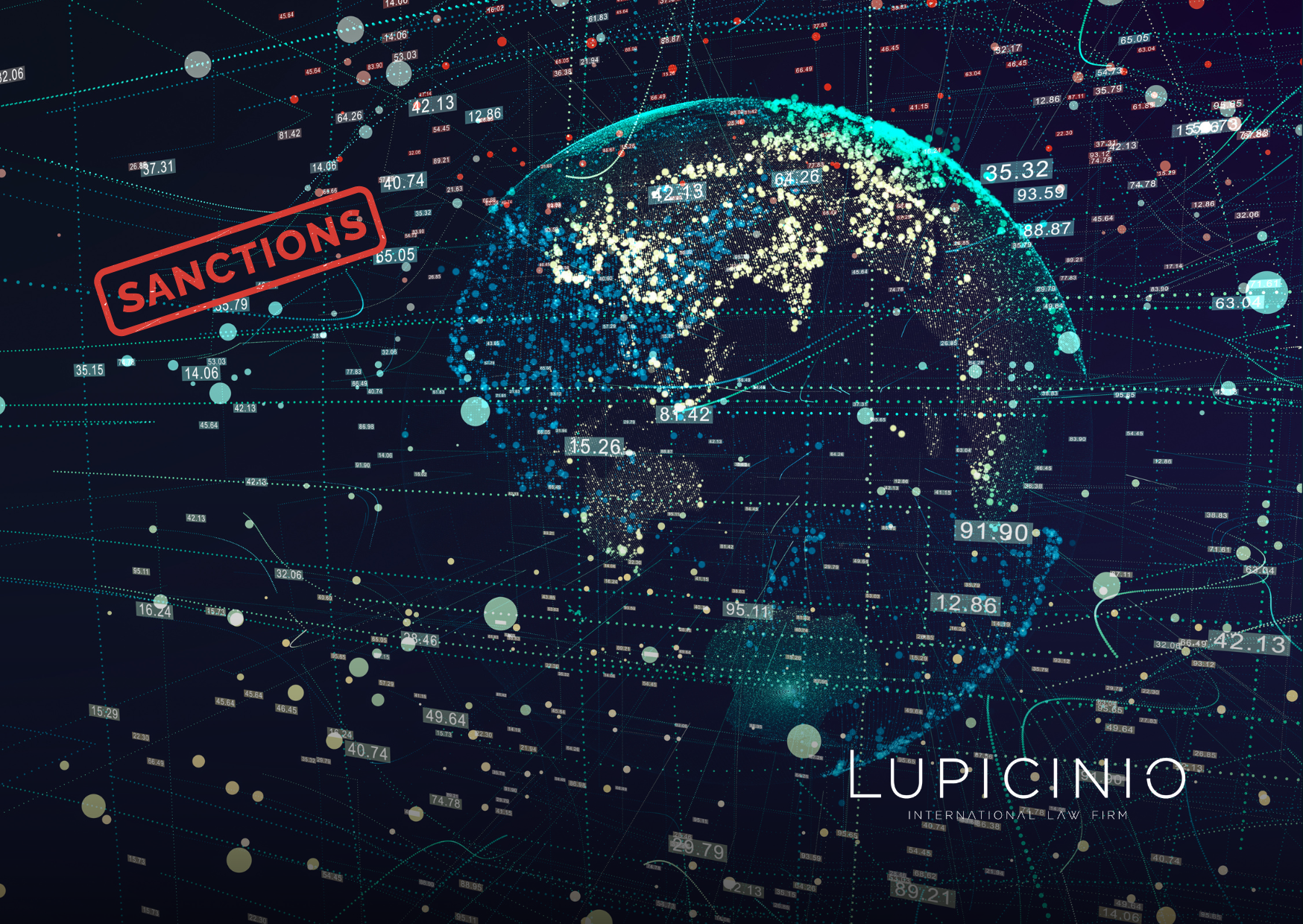On 20 May 2025, the Council of the European Union adopted the seventeenth package of sanctions in connection with the Russia-Ukraine conflict. These European sanctions have largely targeted the Russian Federation’s phantom fleet, but also address the so-called Russian hybrid campaign and an expansion of the different lists of sanctioned individuals and entities, among other issues detailed below:
1. Inclusion of new companies and natural persons on the sanctions lists, implementation of restrictive measures on foreign trade, extension of the list of sanctioned vessels and extension of the duration of the exemption from the oil price ceiling
The main substantial updates to this new package are introduced by Council Decision (CFSP) 2025/931 and Council Regulation (EU) 2025/932, amending Council Decision 2014/512/CFSP and Council Regulation (EU) No 833/2014.
In particular, restrictive measures targeting thirty-one new entities are added to the list of natural or legal persons, entities or bodies included in the relevant annexes to these acts. These subjects are subject to more stringent restrictions on the export of dual-use items and technologies, as well as goods and technologies that could contribute to the technological improvement of the defence and security sectors in Russia. The Council also justifies the inclusion of certain third country entities – established in Turkey, Vietnam, the United Arab Emirates, Serbia and Uzbekistan – that indirectly contribute to Russia’s military and technological upgrading, thus facilitating the circumvention of export restrictions.
This regulation also proceeds to expand the list of items that are considered likely to contribute to Russia’s military and technological improvement by adding products such as: chemical precursors for energetic materials and spare parts and components for high-precision computer-controlled digital machine tools.
Similarly, in order to limit the activity of vessels that are part of the Russian clandestine tanker fleet, the Council adds 189 additional vessels to the list contained in Annex XVI to Decision 2014/512/CFSP. The EU sanctions list currently includes 342 vessels. They are thus banned from accessing ports and locks of EU member states, in addition to being prohibited from receiving numerous services related to maritime transport.
Finally, it extends the duration of an exemption from the oil price cap, which allows, for energy security reasons, the transport by ship to Japan of crude oil from the Sakhalin-2 project in Russia. The extension is granted for one year, until 28 June 2026.
Moreover, through Council Decision (CFSP) 2025/936, amending Decision 2014/145/CFSP, and Council Implementing Regulation (EU) 2025/933 implementing Regulation (EU) 269/2014, 75 entries are added to the list of sanctioned natural and legal persons. Specifically, it concerns 17 natural persons and 58 entities, which will now be subject to an asset freeze and a ban on making economic resources available, as well as a travel ban in the case of natural persons.
2. Sanctions against Russia’s “hybrid campaign”: ban on transactions and suspension of broadcasting licences in the EU
In the same vein, Council Decision (CFSP) 2025/963 amending Decision (CFSP) 2024/2643, together with Council Regulation (EU) 2025/964 amending Regulation (EU) 2024/2642, have brought new developments in the area of sanctions.
First, the EU condemns the “hybrid campaign” waged by Russia, which it claims includes sabotage, attacks on critical infrastructure, cyber-attacks, information manipulation and interference, as well as attempts to undermine democracy, for example by targeting electoral processes in the EU and its member states.
Thus, prohibitions have been placed on transactions involving tangible assets linked to Russia’s destabilising activities, such as ships, aircraft, real estate and physical components of digital and communications networks. Should a facility be listed, European market players would be prohibited from being a direct or party indirect a transaction related to that asset. Restrictions have also been imposed on transactions by credit institutions, financial institutions and crypto-asset service providers that directly or indirectly facilitate actions carried out by persons, entities or bodies involved in or benefiting from destabilising activities in Russia. Importantly, the clause applies to financial institutions and cryptocurrency service providers established outside the European Union, such as in Russia or in third countries.
Finally, in the context of what the EU defines as a systematic, international campaign of media manipulation and distortion of facts with the aim of destabilising its neighbouring countries, as well as the EU and its Member States, restrictive measures have been taken to suspend the broadcasting licences in the EU of Russian media under permanent control of the Russian authorities, and prohibit them from broadcasting their content within or to the EU. However, these restrictions do not prevent these media or their staff from carrying out non-broadcasting activities in the Union, such as investigative work or conducting interviews.
3. Inclusion of new individuals and entities on the list of individuals and entities affected by restrictive measures
In addition to the above, the Council of the European Union has considered that a further 28 natural persons should be added to the list of natural and legal persons, entities and bodies in Annex IV to Council Regulation (EU) 2024/1485 of 27 May 2024 adopting restrictive measures in view of the situation in Russia, as well as 21 natural persons and 6 legal persons on the list in Annex I to Regulation (EU) 2024/2642 adopting restrictive measures in view of the destabilising activities of the Russian Federation.
Accordingly, Council Decision (CFSP) 2025/957 and Council Implementing Regulation (EU) 2025/958 of 20 May 2025 implementing Council Regulation (EU) 2024/1485 are also published; as well as Council Decision (CFSP) 2025/966 and Council Implementing Regulation (EU) 2025/965.
4. Use of chemical weapons in Ukraine
Finally, Council Decision (CFSP) 2025/960 amending Decision (CFSP) 2018/1544, which is directly applicable through Council Implementing Regulation (EU) 2025/959 implementing Regulation (EU) 2018/1542, was published on the same date.
They argue that, as a result of reports published by the Organisation for the Prohibition of Chemical Weapons (OPCW), which reflected the systematic use of chemical riot control agents as a method of warfare on the front lines in Ukraine, three entities should be added to the list.
******
More information:
Lupicinio International Law Firm
C/ Villanueva 29
28001 Madrid
P: +34 91 436 00 90







